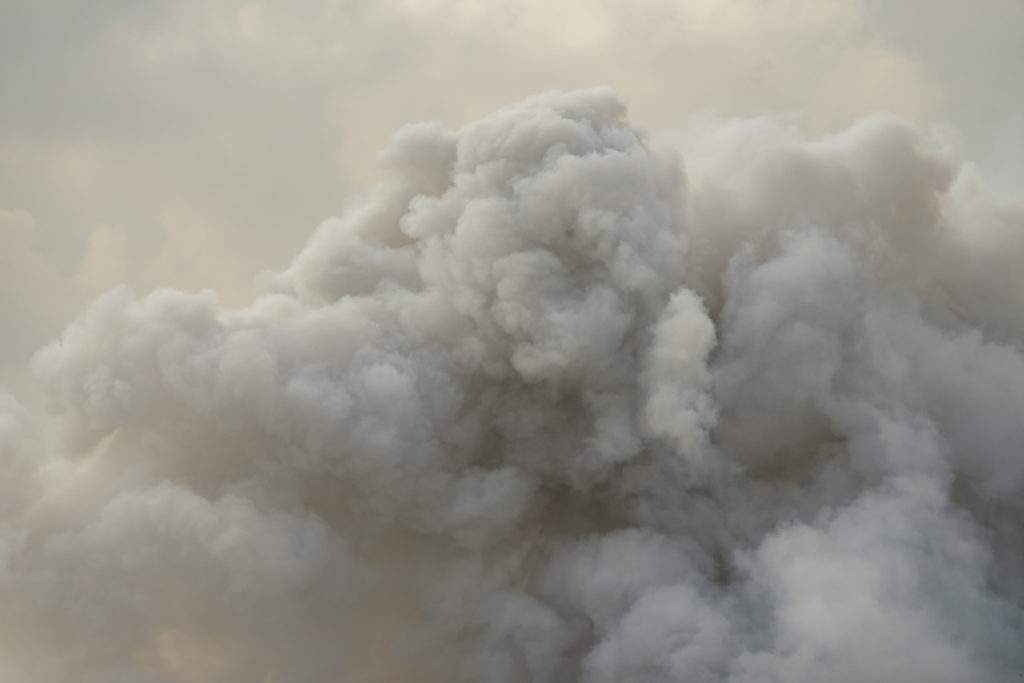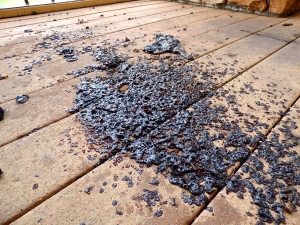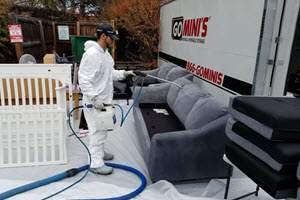Removing Smoke Odor After a Fire

You’ve finally gotten your home back together after a house fire, but something is lingering — the odor of smoke. Whether you suffered a major fire or a small kitchen fire, smoke particles spread throughout your home and get absorbed into porous materials. Even after you think everything has been cleaned up and taken care of, special attention must be paid in order to effectively remove smoke odor.
The extent of the fire odor removal necessary will depend on a variety of factors, including the size and scope of the fire, the type of materials burned (synthetic and plastic materials produce some of the worst and hardest-to-remove odors), and length of time they’ve been allowed to settle. It is important to take care of this problem as soon as you can.
If you are using a qualified fire restoration company like Abbotts Fire and Flood, fire odor removal is a worthwhile service to invest in, but if you want to try to clean the smoke odor on your own, there are many effective steps you can take. Often smoke odor removal is covered by insurance. This video breaks down if smoke damage is covered by insurance.
Air It Out
Open up doors and windows, remove screens, curtains, and other window coverings, and let nature do its work. Of course, this won’t fully remove the smoke odor, but it is an important first step to take to get rid of some of the smoke particles currently residing in your home. Smoke from fires has a lot of health hazards, some of which are outlined by the EPA.
Blow It Out
You can take the airing out a step further by utilizing positive pressure to force the smoke-infested air out of your home. Positive pressure refers to the creation of an imbalance between the air pressure inside of your home and outside of it, by forcing air in using a fan. Because this extra air is being pushed into your home, the old air will also be flushed out as part of this process.
Execute this process room-by-room. Close any doors/windows except for the (1) door or window in which you place a fan, pointed inward, and (2) window that you open for exhaust. Run the fan in this manner for at least 15 minutes, and then move onto the next room once you feel you have flushed out the particulate-laden air.
Clean Hard Surfaces

The smoke and ash in the air during the fire had to land somewhere, and hard surfaces are not immune. Because these surfaces are not as porous as fabric, you can effectively clean them, but it does take some elbow grease.
Make a mixture of one gallon of warm water, ¼ cup of white vinegar, and a teaspoon of dish soap. Using this mixture, scrub down absolutely everything you can. Make sure to get crown molding, baseboards, cabinets, shelves, windowsills, and any other surface you can think of. Remove and scrub down light fixtures, as well, as ash likely settled inside of them during the fire.
Clean the rag in the sink regularly, as you want to get rid of the particles, rather than continue to spread them around by using a dirty bucket of cleaning liquid.
Clean Fabrics

Vacuum and Mop Floors
Throughout this process, you’ll need to be vacuuming and mopping your floors, as particulate will fall from surfaces and the air and settle on the floors. To remove smoke odor from carpeting, sprinkle baking soda over the carpet and allow it to rest for 24 hours, absorbing the odor. Then vacuum the carpet thoroughly, using a vacuum with a HEPA filter so that the smoke particles don’t just reenter the air.
Mop hard floors, and rinse the mop in clean water, rather than using a mop bucket. This is extra work, but if you just keep dipping the mop back into the same water, you’re spreading particulate around, rather than truly getting rid of it.
Keep the Air Clean
You’ll want to address both your window screens and HVAC filters, to ensure new air circulating through your home isn’t just picking up particulate. Clean your window screens in the bathtub with water and dish soap, and replace filters. You should also consider bringing in an HVAC professional to clean and assess any damage to your HVAC system.
Paint
Last but not least, you’re going to need to deal with your walls. Paint is another porous material that smoke odors can linger inside of. In order to get rid of the smell of smoke that’s sticking to your walls, you will need to first clean the walls, and then repaint them.
Wash the walls using ammonia- or glycol-based cleaning products, which neutralize odors. After rinsing the walls, allow them to dry completely, and then repaint. Use a paint primer first, to seal in the odors, and finish with a latex paint.
Ridding your home of smoke odors after a fire can be an extensive process. While some tasks may be simple enough to complete on your own, if you run into problems, or would prefer to have a professional remediation company take care of the whole thing, Abbotts is here to help. Abbotts has a lifetime smoke odor recurrence warranty for all the work we do, which is just another way we make sure your restoration goes smoothly. Our fire remediation professionals can get your home and lives back to normal. Please contact us today for a free consultation.

